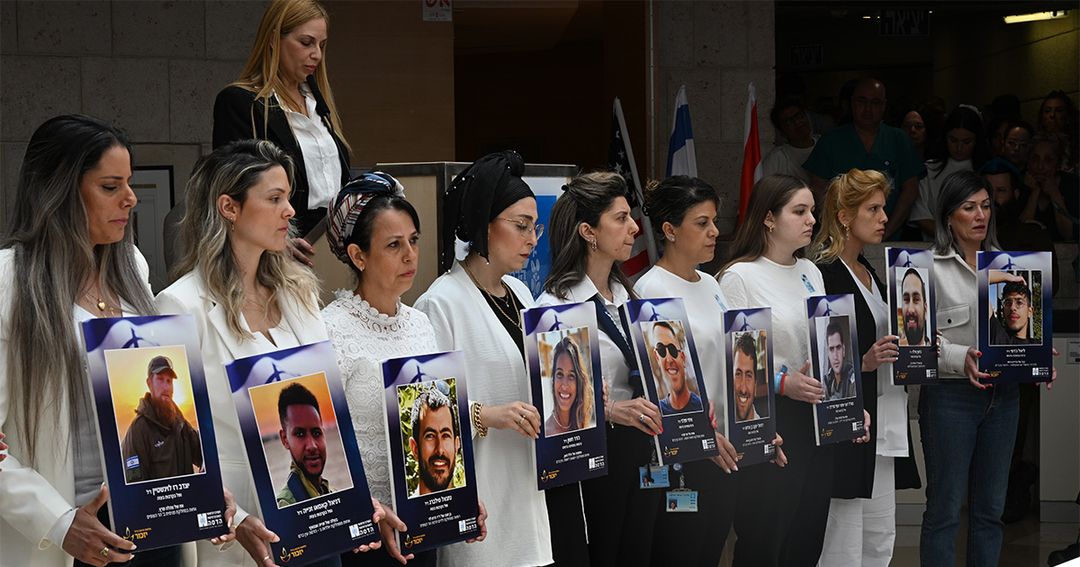
Israelis are preparing to mark a year since October 7, 2023, when Hamas terrorists invaded Israel, killing 1,200 and wounding and capturing many more.
In the interim, staff at the Hadassah Medical Organizations have lost loved ones, served on the front lines and given their all to save lives and help the injured back to fully-functioning lives, physically and psychologically.
But all that has taken a toll on the Hadassah Medical Organization’s 7,400 employees.
When a direct relative of a Hadassah staffer was killed at the Nova music festival, the family fell into financial crisis.
“We couldn’t leave them alone, helpless,” says Lilach Gozlan, who heads the staff-welfare division in the human resources department.
The hospital created a welfare fund to help deal with monetary issues, but the department’s work has gone far deeper.
“We had cases where a manager noticed their employee was either repeatedly coming to work late or failing to show at all,” says Gozlan. In a few instances, these were people who had just returned from reserve duty and couldn’t handle the psychological effects. “The managers went to their homes to check up on them and work with them.”
The welfare department set up educational facilities in the first weeks of the war in protected areas close to the Hadassah campuses. The team recruited volunteers from pre-army academies to join professionals in caring for as many as 200 children aged 0-12 from 6:30 am till 4 pm.
“In COVID there was a set formula, we’d send food packages to those affected and so on,” says Gozlan. “But there were no procedures for October 7 and what’s happened since.”
Five staffers lost immediate relatives on October 7, another was abducted to Gaza. From day one, 500 volunteers called every staff member to inquire about their welfare. Some 86 employees live within 25 miles of Gaza –– the area deemed most at-risk by the Israel Defense Forces’ Home Front Command.
Gift and food packages were distributed widely, with considerable support from Hadassah, The Women’s Zionist Organization of America.
The welfare team set up webinars with experts to help staff through the worst times. They produced films offering coping mechanisms and more. They trained managers in how to deal with returning reservists. They helped ease tensions between Jewish and Arab staff. They brought performers into the hospitals to help improve morale.
The statistics speak to the volume of work the small team and their volunteers took on during the last months:
- 21 staff members lost a direct relative
- 426 staff members served as reservists in the first months of the war
- At least 476 family members have served as IDF reservists
Gozlan and her team continue working with families affected by the war, sharing financial and physical support, but perhaps more importantly, psychological support –– making sure that all staff members feel the warm embrace of their Hadassah family.
